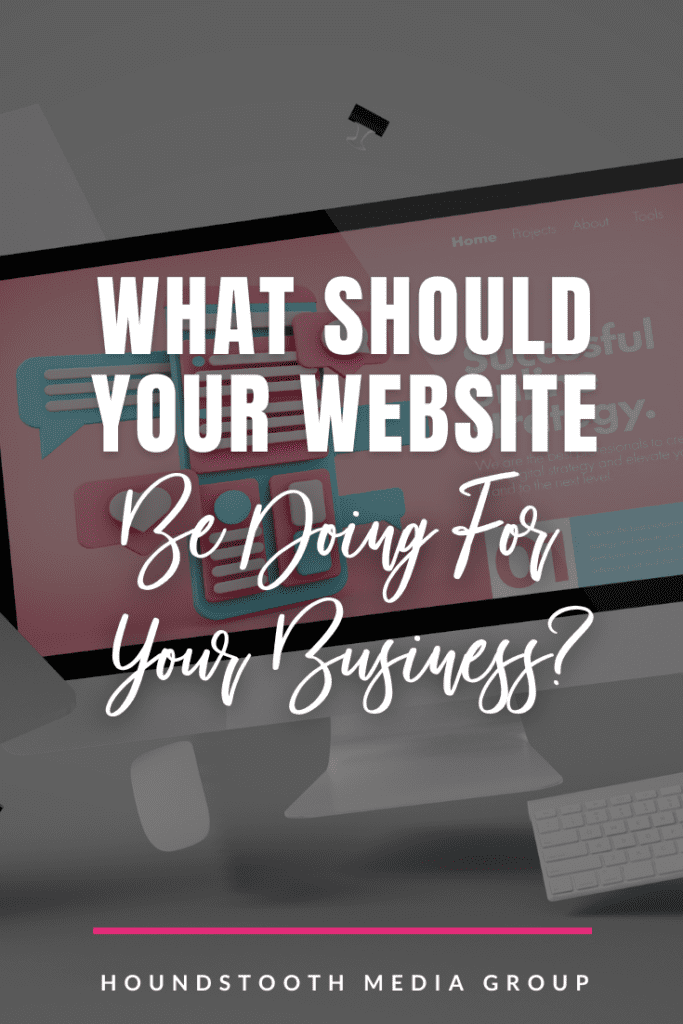Setting up a website for your business is exciting! Having your own website leaves you feeling accomplished and official, giving you the opportunity to proudly direct potential customers to look you up and learn more about your business. However, these feelings are just that: feelings. Is your website actually doing anything concrete for you? A poorly designed site might just be a drain on your resources that you have to pay to maintain while it fails to pull its own weight. There are multiple ways to make your website work for you and your business.

The Customer Experience
The most important thing to keep in mind when building your website is your potential customer. Your site should be designed to convert visitors into paying customers. Ask yourself how a website works: is it just a page of information lumped together for the reader to sit and slog through? Of course not. A well-designed website is made to guide your visitor from one point to another in a logical, step-by-step manner. This is called the customer journey. You are inviting them to delve a little deeper into what your business has to offer.
The copy on your home page should be easy to skim. You want to give your readers an idea of what you’re all about without overwhelming them with blocks of text. Skimmable headers can give readers a general idea of what they’re looking at while enticing them to look a little bit deeper. Give them reasons to keep on clicking and lead them to pages where you can go into greater detail about your services and the benefits you have to offer them.
The Call to Action
While your website should be a great source of information on your business, it should also provide a way for your visitors to become customers. Remember, you want conversions! Your site should be built for a visitor to continue the engagement, whether it’s a “buy now” button, a sign-up for an email list, or a way to schedule a call or appointment. We call these “calls to action,” or CTAs. The end goal of your website should be to get your visitor to follow at least one of these CTAs.

Search Engine Optimization
One important part of building your website is making sure it can be found. The greatest content in the world means nothing if nobody knows it’s there. That’s where SEO comes in; when writing your copy, make sure that you have the appropriate keywords sprinkled throughout. When Google’s spiders crawl your website, they’ll pick up on your keywords and rank you higher on organic searches. This is not only important for getting found, but it also saves you money. There’s no need to run expensive ad campaigns when you can simply improve your SEO and appear at the top of Google’s search results.
You might ask yourself, what are the appropriate keywords? That will depend on your customers. What is your ideal customer typing into the search bar? Put yourself in their shoes and include those questions and phrases in your website’s copy; the closer your copy matches the inquiry, the more likely that your customer will find you. Be sure to include any synonyms or variations of the question. For example, are people searching for bounce houses or inflatable castles? If people are typing in both terms, you should include both in your copy; otherwise, you may be losing out on half of your potential customers.
Analytics
One set of features that you may not be aware of are your website’s analytics. Analytics allow you to track your website’s performance: how many visitors you get, which links they’re clicking, and how many conversions you’re getting. Analytics allow you to keep your finger on the pulse of how well your website is performing. If you aren’t getting the numbers you want, you know you need to change something in order to attract more visitors. Remember, you want to make your website work for you. Analytics are an important factor when it comes to getting the most out of your site.

What Results Do You Want?
So, what should your website be doing for your business? The goal of the website should be to make those sweet, sweet conversions. You want people ordering your products and requesting your services, signing up for your newsletters, and booking calls and meetings. Your site should be more than just an informational hub; it should be a jumping-off point for people who are interested in your business to take the next step and start engaging with you. If this sounds like what you want your website to do for you, then you might be interested in our web design and development services.